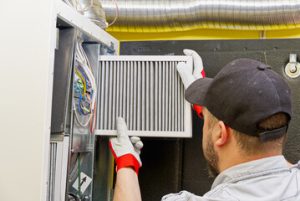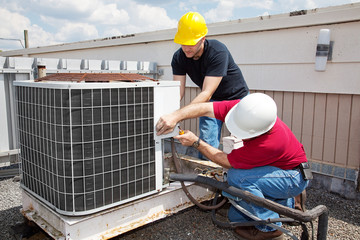A quality HVAC contractor is more than just a repair person; they are an energy expert, safety specialist, and health advisor all rolled into one. This is why you should never settle for anything less than valid licensing, insurance coverage, and NATE certification.
Exceptionally low estimates should be a red flag because they could lead to hidden fees later on. You should also look for a reputable 24 Hour HVAC Company that prioritizes communication and customer service.

Do’s
There are a number of key HVAC processes that must be performed for optimal efficiency, comfort, safety, and life expectancy. Just like following a recipe, these steps are necessary to ensure the desired outcome. Skipping any of them will only lead to high energy bills and a shortened life expectancy.
Make sure the company you hire will complete all required state and local permits. This is a very important step, and you should not work with any company that does not meet this requirement.
Look for an HVAC company that is constantly updating its technology and processes. There are constant technological advances in the industry, and a company that does not keep up with these changes could mean that they’re not putting your best interests first.
A company that offers a streamlined process from start to finish will save you time and money. This includes a turnkey proposal that covers all local and state permits, as well as all necessary engineering and inspections. They’ll also provide you with an information portal for tracking your system data. This will help you reduce operational costs through informed recommendations and improved equipment performance.
Having furniture, rugs, or curtains blocking your vents can cause a major problem for your HVAC system. It will work much harder to regulate your indoor temperatures, causing it to use more energy in the process. Replacing old rugs and curtains and ensuring all vents are unobstructed will also help your system operate more efficiently.
If you’re looking to replace your HVAC system, consider a company that can assist with financing, rebates, and tax credits for the installation of new equipment. They’ll have the experience and expertise to model expected returns from projects that pay for themselves through productivity and utility savings.
Don’ts
You don’t want to rely solely on an HVAC company’s reputation and ratings. Inquire about their track record, focusing on how well they’ve met or exceeded customer expectations. Ask to see testimonials and browse recent projects. You may also wish to request detailed quotes for each service so you can compare options. Transparency in pricing is a key sign of integrity and an overall commitment to ethical business practices.
A reliable HVAC contractor should have a skilled technical team that’s experienced both in the field and in systems design. They should be familiar with all the latest trends and equipment, as well as state regulations and installation methods. It’s best if you’re able to meet the team before hiring, which will give you an opportunity to assess their level of professionalism and expertise.
Look for a company that uses only high-quality equipment and parts, as this improves efficiency and extends the lifespan of your equipment. It’s also important to find a provider who offers both installation and ongoing maintenance services, which eliminates the need for multiple service calls. Lastly, look for an HVAC company that has strong communication skills and explains your options in easy-to-understand terms. This will help you feel confident in your decision and avoid any confusion or frustration throughout the process. Then, you’ll be able to enjoy your new heating and cooling system with peace of mind.
Check Reviews
HVAC systems are crucial for maintaining comfort, efficiency, and indoor air quality in residential homes; commercial, office, and industrial structures such as hotels and skyscrapers; and vehicles like cars and airplanes. These systems are complex and require the expertise of trained professionals to ensure safe and reliable operation. HVAC professionals are also well-equipped to diagnose and fix minor issues before they become major problems. They can also provide additional services, such as installing or repairing indoor air quality products.
When choosing an HVAC company, it is important to check reviews and ratings before hiring. Online reviews can help potential clients decide which company to hire based on the experiences of other customers. For example, if two HVAC companies have similar prices and reputations, most people will choose the one with more positive reviews. Reviews can also build trust and credibility, which can increase the chances of a company getting new business.
A good HVAC company will value feedback and respond to it in a professional manner. This will show potential customers that they care about customer satisfaction and are committed to improving their services. It is also helpful for businesses to have a Google Business Profile, which allows customers to leave reviews.
In addition to checking reviews, it is a good idea to ask potential HVAC companies about their experience, licensing, and insurance coverage. This information can help homeowners make a more informed decision and feel confident in their choice.
Check License
An HVAC company’s license demonstrates that they have met the minimum requirements set by the city and are qualified to work on your system. It’s also a sign of their professionalism and reliability. Ask the company to provide proof of their license and confirm that it’s valid by checking with the state agency that issued it.
An established company with a long track record of excellent service is more likely to be trustworthy and reliable. A local business will also be more familiar with your area’s unique climate and needs, allowing them to offer more tailored solutions for their clients.
When selecting an HVAC company, look for certifications like NATE (North American Technician Excellence) and EPA Section 608 Certification, which are important credentials that ensure technicians are knowledgeable about the latest technology in heating, ventilation, and air conditioning. You can find these certifications on the company’s website or by calling them.
Most HVAC professionals complete an apprenticeship program that combines on-the-job training with classroom instruction or attend a vocational school to prepare for the state licensing exam. Some may also pursue additional certifications to broaden their skill sets and improve their career prospects.
Licensed HVAC professionals are required to undergo a background check and have a clean criminal record before they can perform any work in your home. They must also pass a trade knowledge and a business and finance knowledge exam before being granted a contractor license. In addition to being licensed, contractors must have liability insurance and workers’ compensation insurance. If a contractor does not have these insurances, you could be responsible for any injuries or damage caused by them on your property.
Check Insurance
HVAC systems are an integral part of residential and commercial structures, allowing people to remain warm and comfortable in winter, cool and fresh in summer. They are designed to filter and move air through ductwork to regulate temperature, remove excess humidity, and ensure proper ventilation.
In order to work in the HVAC industry, contractors need to be licensed and insured. This shows that they have met local regulations and have expertise in the field. It also demonstrates that they prioritize safety and can provide a quality installation or repair service. Additionally, insurance protects homeowners in case of accidents or damage that occurs during the project.
Having a license and insurance can help avoid scams by weeding out less-reputable contractors, and it’s important to ask about both when choosing an HVAC company. Asking for references and reviews from previous clients can also help you determine whether an HVAC company is trustworthy.
It is also important to check an HVAC business’s insurance policy, as it outlines the coverage limits and details that are in place. For example, HVAC contractor insurance usually covers damage to third-party property during business operations, as well as injury or death caused by the HVAC company’s workers.
Additionally, the policies may include coverage for commercial property loss, which can cover inventory, equipment, and other assets that are lost in the course of business operations. It may also cover business interruptions, which can help pay for the expenses associated with reopening and restoring a business following a loss. Additionally, cyber liability insurance can help protect against the costs of restoring data and repairing the reputation of an HVAC business after a data breach.
